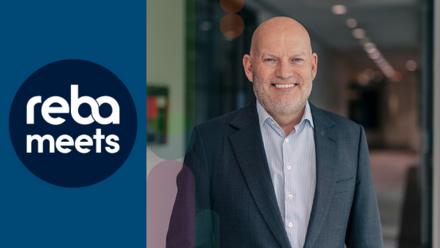How to work with a financial adviser to support employees across the workforce

The stats surrounding financial wellbeing are startling. Neyber’s DNA of Financial Wellbeing (2016) report found that 70% of employees waste a fifth of their time at work worrying about money, while Aegon and the Centre for Economics and Business’ Financial wellbeing in the workplace (2018) research found the cost to UK employers of absenteeism and presenteeism caused by poor financial wellbeing is £1.56 billion per annum.
The question is no longer whether you should work with an adviser to support your employees (it’s a resounding yes!), but how to effectively make use of one to prevent this disheartening statistical back drop.
Financial education
‘Education, Education, Education’ – a phrase we’ve heard from many a politician and for good reason. Education is often the foundation for confidence and ‘money worries’ are typically exacerbated by a lack of support, understanding and, yes, education. We are all taught that π = r² and how to measure the circumference of a circle at school, yet no one thought it important to tell us what APR means, how to apply for a mortgage, how much you might need to retire, or how a pension works. Universities similarly fail to pick up the slack, so now employers are ultimately our last bastion of hope.
Indeed, 51% of UK adults believe they would feel more positive about money if they simply had a better understanding of it, according to First Direct’s The Money Wellness Index (2020). This should be step one for the adviser you are working with: an education programme that helps improve employee knowledge from the very basics, right up to the complexities of retirement and the multitude of pension schemes it may involve.
Some simple rules to follow:
- Keep it fun and engaging: a dull actuary staring at his or her shoelaces simply won’t land well.
- Keep it relevant: as well as useful generic financial education, an adviser should have a comprehensive understanding of your existing scheme and benefits to guide staff accordingly.
- Keep it topical: the programme should take into consideration a varied level of staff knowledge and focus on important life events.
- Have a range of formats to drive engagement: in-office presentations (2021 hopefully!), webinars, short video content and education embedded into a benefits platform.
- High earners need education too: if anything, they’re often impacted the most due to their time-poor and high-stress environments.
- Repeat: you’ve likely heard the famed marketing rule that information needs to be viewed a minimum of seven times to be retained. The programme should run throughout the year and be repeated annually!
Guidance and advice
Once you have an education programme up and running, it’s important to offer more direct support to your staff members. Ideally, this should include one-to-one clinics where a qualified individual can offer guidance to employees, primarily aiming to alleviate basic concerns, provide clarity around your scheme and outline general financial considerations.
However, it’s also important that employees have the option to take formal advice when required. Unbiased’s The Value of Advice Guide (2015) found that, on average, people who take advice on their retirement planning have an estimated £48,279 more in their pot compared to those in a similar income bracket who do not take advice. It’s a compelling statistic and a strong reminder of the need to provide a route to advice for staff members approaching retirement. The relationship should preferably be independent from the direct support your company has provided, with a separate agreement made between adviser and employee in a personal capacity to ensure lines are not unhelpfully blurred.
We’ve had a fun year re-launching Lorica Workplace, which had historically prioritised pension governance and benefits advice. Whilst these both remain an important part of our offering, we’ve experienced a significant shift in trends and our financial education programme and guidance, without a doubt, leads the way and is in high demand.
Employees are desperate for financial education and adviser support in the workplace, and it likely won’t be long until it’s an anticipated benefit.
The author is Jordan Gillies, group head of financial wellbeing at Lorica Workplace.
This article is provided by Lorica Workplace.
Supplied by REBA Associate Member, Lorica Workplace
Lorica has one simple aim: to help people develop a healthy relationship with money.







